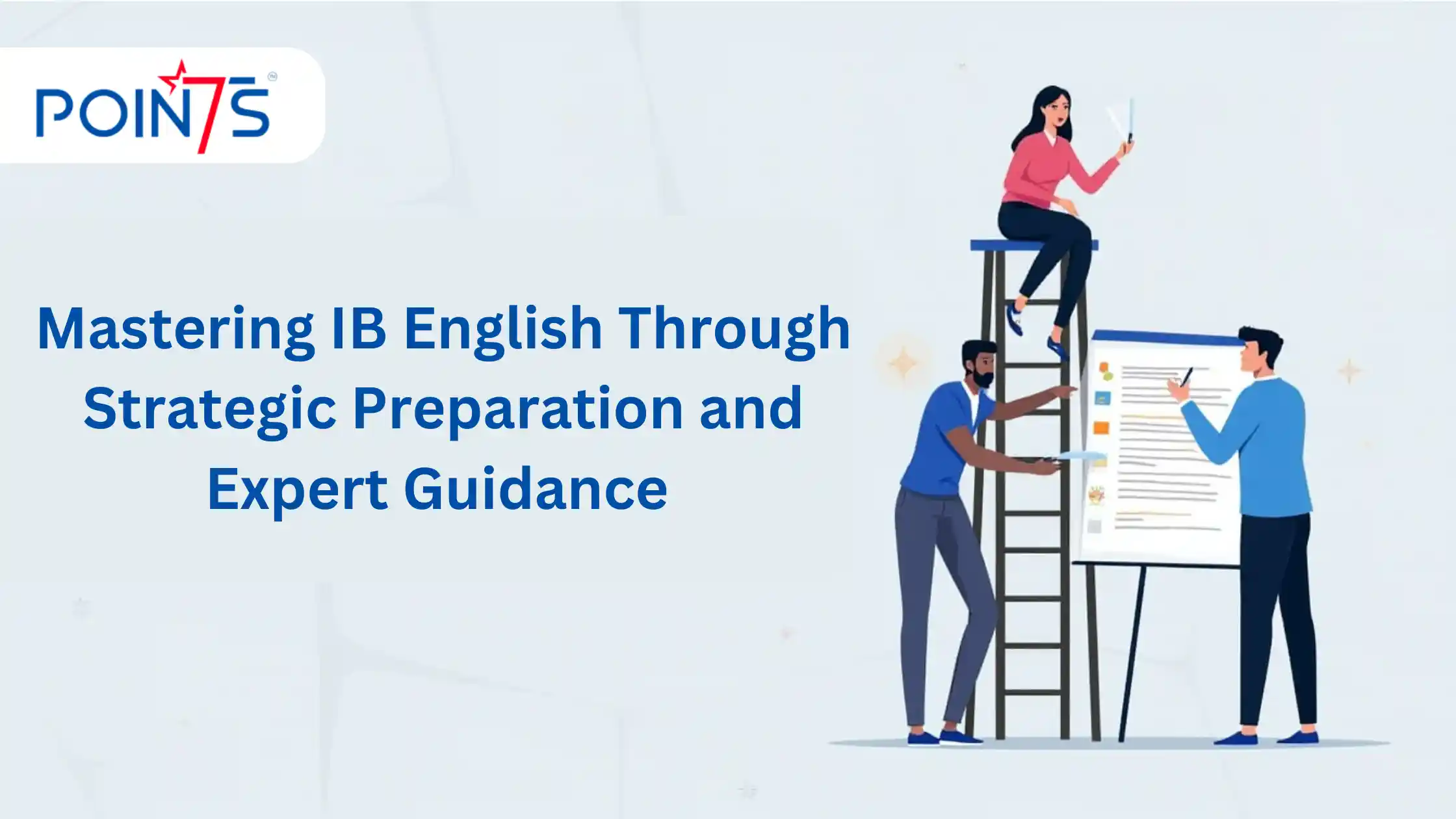Beginning the IB English programme presents significant academic challenges that require systematic preparation and dedicated effort. Students encounter rigorous analytical demands, complex textual interpretation, and sophisticated assessment criteria. However, success becomes achievable through structured approaches and appropriate support systems. This comprehensive guide provides evidence-based strategies to navigate IB English effectively and achieve excellence across all assessment components.
Understanding the Academic Rigor of IB English
The IB English curriculum extends substantially beyond conventional literature studies. The programme emphasizes critical analysis of diverse textual forms including classical literature, contemporary poetry, dramatic works, and media communications. Students develop sophisticated interpretative skills by examining authorial techniques, literary conventions, and linguistic influences on meaning construction.
The curriculum challenges students to evaluate texts through multiple analytical lenses. This involves investigating deliberate stylistic choices, understanding contextual influences, and constructing substantiated arguments about textual significance. Engaging qualified IB Tutors provides students with structured methodologies to approach these complex analytical demands systematically.
Essential Competencies for Academic Excellence
Achieving excellence in IB English requires more than natural fluency; it demands disciplined practice, critical engagement, and refined communication skills. Students must cultivate the ability to interpret texts beyond surface meaning, construct persuasive arguments, and present their insights with confidence. These competencies not only strengthen exam performance but also build transferable skills essential for higher education and professional success. Here are the essential competencies for academic excellence:
Advanced Textual Analysis
Effective textual analysis in IB English requires moving beyond plot summarization to examine how authors construct meaning through deliberate linguistic and structural choices. Students must develop the capacity to identify, interpret, and evaluate literary techniques within their broader thematic contexts.
Critical analytical skills include:
- Examining authorial decisions regarding narrative structure, perspective, and stylistic elements
- Identifying literary devices such as symbolism, imagery, metaphor, and tone
- Establishing connections between textual details and overarching thematic concerns
- Constructing evidence-based interpretations supported by close reading
This analytical depth distinguishes high-performing students from those who rely primarily on descriptive approaches. Working with an experienced IB English Tutor helps students develop these sophisticated analytical capabilities through targeted instruction and personalized feedback.
Constructing Persuasive Academic Essays
Essay writing constitutes a fundamental component of IB English assessment. Successful essays demonstrate clear argumentation, logical organization, effective evidence integration, and sophisticated analytical commentary.
Essential essay components include:
- Formulating precise, arguable thesis statements that establish clear analytical positions
- Organizing arguments logically with coherent paragraph structure and smooth transitions
- Integrating textual evidence seamlessly while maintaining analytical focus
- Providing substantive commentary that explains how evidence supports broader arguments
- Maintaining academic voice and demonstrating original critical thinking
- Concluding with synthesis that reinforces the central argument
Effective essay writing develops through consistent practice and constructive feedback. Points Edulab provides comprehensive essay review services that help students identify weaknesses in argumentation, evidence integration, and analytical depth.
Developing Oral Communication Proficiency
The Individual Oral assessment requires students to present structured literary analysis while demonstrating confident communication skills. This component evaluates both content knowledge and presentation effectiveness.
Successful oral presentations require thorough preparation, clear organizational structure, and the ability to articulate complex ideas concisely. Students must balance scripted preparation with natural delivery, ensuring their analysis remains coherent while avoiding overly rehearsed presentations.
Classroom discussions similarly demand active engagement, respectful exchange of ideas, and the ability to build upon peer contributions while defending personal interpretations with textual evidence.
Conducting Rigorous Academic Research
Strong research skills enhance analytical depth and demonstrate engagement with broader literary scholarship. Students must identify credible academic sources, integrate external perspectives appropriately, and maintain proper citation practices.
Effective research requires accessing peer-reviewed journals, academic databases, and scholarly publications rather than relying on general internet sources. Students must balance incorporating external insights with maintaining their own analytical voice throughout their work.
Proper citation practices using MLA or APA formatting demonstrate academic integrity and professional standards. These practices become increasingly important in higher education and should be established as consistent habits during IB studies.
Evidence-Based Strategies for Academic Success
Achieving strong results in IB English depends not only on talent but also on consistent, research-backed strategies. Students who approach their studies with structure, discipline, and reflection often demonstrate sharper analysis and greater confidence. Evidence-based methods ensure that preparation remains focused, purposeful, and sustainable throughout the course. Here are the strategies that drive academic success:
Implementing Early and Consistent Preparation
Academic research consistently demonstrates that distributed learning produces superior outcomes compared to concentrated study periods. Students should begin textual analysis early, allowing time for ideas to develop and deepen through sustained engagement.
Regular annotation practices transform reading from passive consumption to active analytical engagement. Students should record observations, questions, and interpretative possibilities as they progress through texts. These annotations become valuable resources when constructing essays and preparing for assessments.
Engaging in Deliberate Practice
High achievement requires systematic practice beyond assigned coursework. Students should regularly complete timed essay responses, analyze unseen texts, and refine oral presentation skills through repeated practice cycles.
Effective practice strategies include:
- Working through past examination papers under timed conditions
- Analyzing unfamiliar texts to develop rapid analytical skills
- Recording and reviewing oral presentations to identify areas for improvement
- Seeking feedback on practice work to guide continued development
Points Edulab offers structured practice programs that simulate authentic examination conditions while providing expert guidance to maximize learning from each practice session.
Utilizing Collaborative Learning Opportunities
Collaborative study environments provide exposure to diverse interpretative perspectives and analytical approaches. Group discussions reveal that literary texts support multiple valid interpretations when properly substantiated with textual evidence.
Peer review sessions offer valuable opportunities to receive constructive feedback on written work. Fresh perspectives identify unclear arguments, weak evidence, or logical inconsistencies that authors may overlook in their own writing.
These collaborative experiences reinforce that literary analysis involves constructing persuasive arguments rather than identifying singular correct answers.
Accessing Professional Academic Support
Seeking assistance when encountering difficulties demonstrates academic maturity rather than weakness. Teachers and tutors possess extensive experience addressing common student challenges and can provide targeted strategies for improvement.
IB Tutors at Points Edulab specialize in identifying individual learning needs and developing customized support plans. Whether students require assistance with unseen text analysis, essay structure refinement, or Individual Oral preparation, professional guidance accelerates skill development and builds academic confidence.
Achieving Excellence in Internal Assessments
The Internal Assessment represents a significant opportunity to demonstrate independent analytical capabilities. Unlike timed examinations, the IA allows students to develop sophisticated analysis through extended engagement with self-selected texts and topics.
Strategic approach to IA success:
- Select literary works that offer substantial complexity for in-depth analysis
- Choose global issues that align with personal interests and allow meaningful textual connections
- Develop clear analytical frameworks that guide investigation systematically
- Support arguments with extensive textual evidence and relevant scholarly research
- Revise thoroughly to refine argumentation and strengthen analytical clarity
Early planning proves essential for IA success. Students should select topics well in advance, allowing sufficient time for research, drafting, and multiple revision cycles. Each revision iteration should strengthen analytical depth, improve evidence integration, and enhance overall coherence.
Professional guidance from experienced IB English Tutors helps students develop strong IA proposals, refine analytical approaches, and polish final submissions to achieve optimal results.
Establishing Your Path to Academic Excellence
IB English presents substantial academic challenges that require dedication, strategic preparation, and systematic skill development. The programme cultivates critical thinking, sophisticated communication, and analytical capabilities that extend well beyond secondary education. These competencies prove invaluable throughout university studies and professional careers, making the investment in skill development highly worthwhile.
Academic success requires consistent effort and appropriate support systems. Begin implementing strategic preparation immediately through active reading, regular writing practice, and thoughtful discussion participation. Points Edulab provides comprehensive academic support tailored to individual student needs, helping learners develop the capabilities necessary for excellence in IB English and beyond.
FAQs
IB English, particularly at Higher Level, demands sophisticated critical thinking and independent interpretation rather than memorization of prescribed analyses. The unseen text component of Paper 1 challenges students to demonstrate analytical capabilities without advance preparation, requiring well-developed skills that function effectively under examination conditions.
Top-performing students consistently demonstrate several key characteristics. They analyze texts deeply rather than summarizing content. They construct clear, argument-driven essays with well-defined theses. They integrate evidence effectively while providing substantive analytical commentary. They deliver confident, well-structured oral presentations that demonstrate genuine textual engagement. Most significantly, they maintain consistent practice schedules rather than concentrating preparation immediately before assessments.
English Literature focuses exclusively on traditional literary forms including novels, poetry, and drama. English Language and Literature incorporates non-literary texts such as media articles, advertisements, and various communication forms. Students should select the course that aligns with their academic interests and analytical strengths. Those interested in broader language studies and media analysis may prefer Language and Literature, while students focused on purely literary analysis may find Literature more suitable.
Paper 1 presents significant difficulties for many students. Analyzing unfamiliar texts under time constraints while constructing coherent, well-supported arguments requires extensive practice and strong foundational skills. The Individual Oral similarly challenges students who struggle with presentation anxiety or organizational structure. Both components improve substantially through deliberate practice with feedback from qualified IB Tutors who understand examination requirements and can provide targeted preparation strategies.




